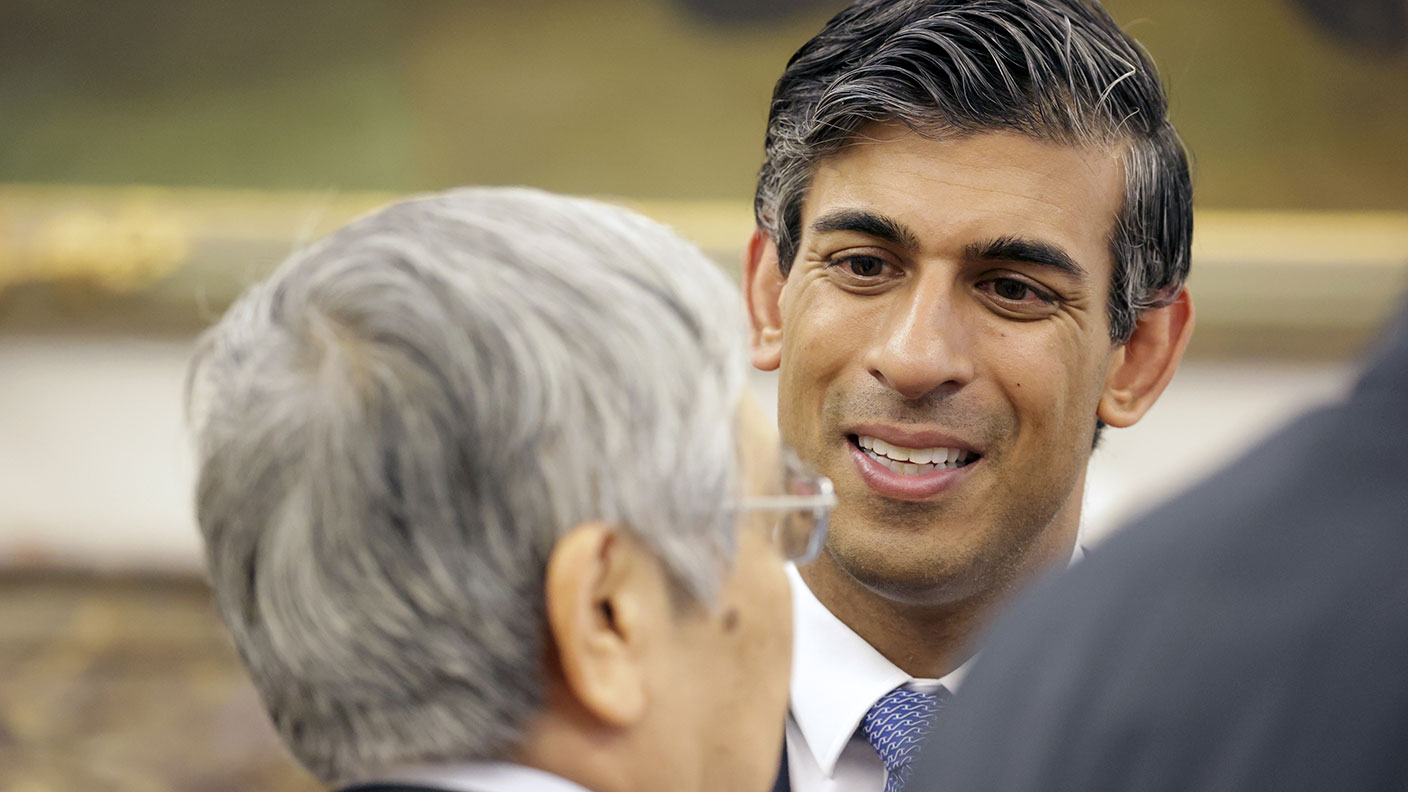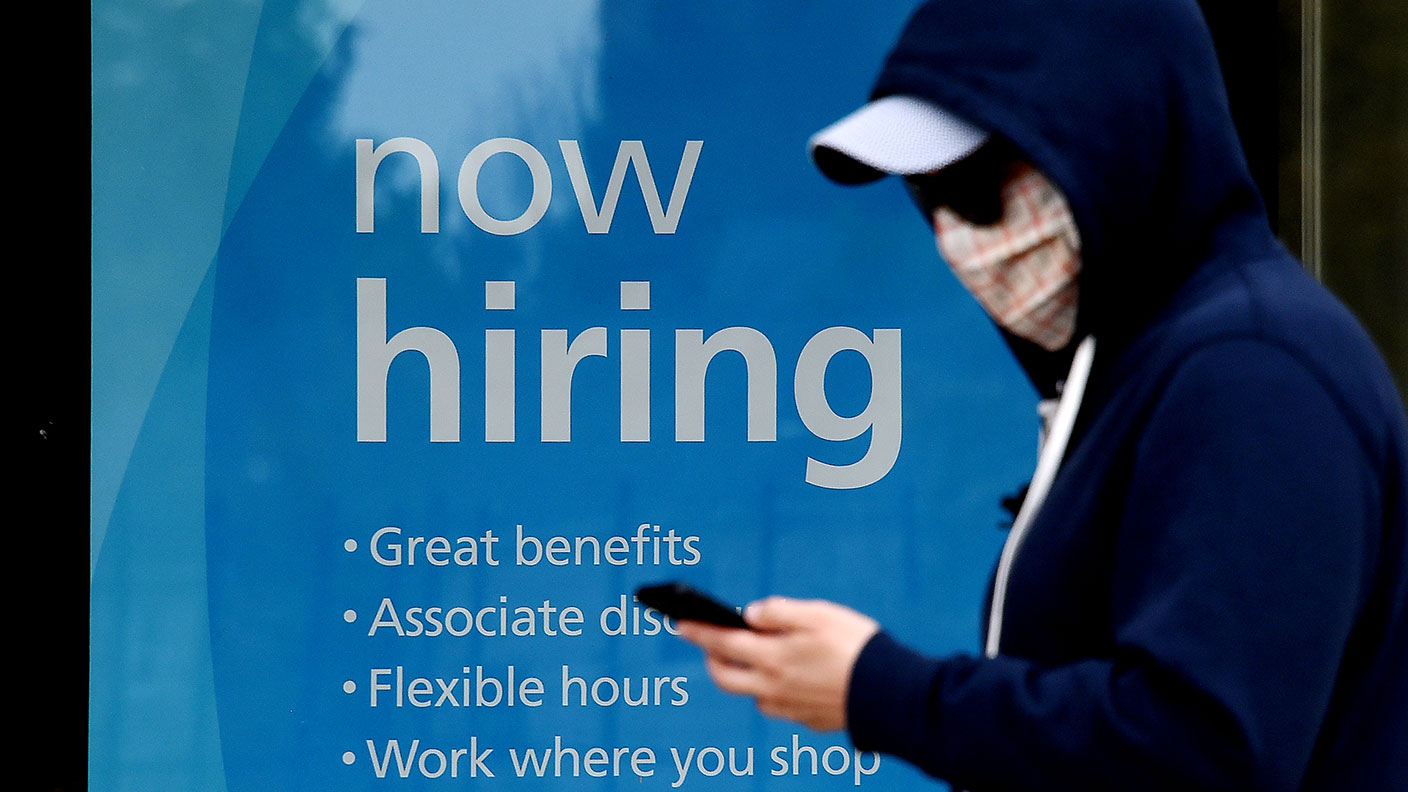Markets don’t care about Trump’s impeachment, and nor should you
America impeaching its president might sound like a big deal. But markets shrugged it off. You should too, says John Stepek. It’s political showboating that will have very little practical outcome.

Get the latest financial news, insights and expert analysis from our award-winning MoneyWeek team, to help you understand what really matters when it comes to your finances.
You are now subscribed
Your newsletter sign-up was successful
Want to add more newsletters?

Twice daily
MoneyWeek
Get the latest financial news, insights and expert analysis from our award-winning MoneyWeek team, to help you understand what really matters when it comes to your finances.

Four times a week
Look After My Bills
Sign up to our free money-saving newsletter, filled with the latest news and expert advice to help you find the best tips and deals for managing your bills. Start saving today!

Yesterday, for only the third time in history, the president of America was impeached.
There was Andrew Johnson in 1868; there was Bill Clinton in 1998; now there's Donald Trump. (Before you ask, Richard Nixon resigned before he could be impeached.)
That sounds like quite a big deal the president might be fired. Surely that's important? Surely markets felt a little perturbed by the turn of events?
MoneyWeek
Subscribe to MoneyWeek today and get your first six magazine issues absolutely FREE

Sign up to Money Morning
Don't miss the latest investment and personal finances news, market analysis, plus money-saving tips with our free twice-daily newsletter
Don't miss the latest investment and personal finances news, market analysis, plus money-saving tips with our free twice-daily newsletter
Not a bit of it. And to be honest, they're probably right on this occasion.
Beware anyone writing about the politics of foreign lands
If there's one thing I've learned from reading American "hot takes" on Brexit, it's that politics is local in a way that financial markets are not.
Columnists declaim loudly all the time on things that they clearly know nothing about. But it's particularly bad and particularly obvious when they apply their limited talents to overseas politics.
As far as I can see, everyone in America who writes about Brexit, for example, is really writing about Donald Trump. If they like him, they like Brexit. If they don't like him, they don't like Brexit. This is in spite of the fact that the two things have almost absolutely nothing to do with one another.
So foreign politics is just a way for writers to channel their own local political biases and to put on a display for their own local political tribe.
This is why I'm not interested in doing any deep dives or in-depth analysis of the US political scene. I don't understand it very well. I struggle to care about who the main players are. I know enough about our own politics to realise that usually the people generating the most noise on social media are in no way correlated to the people who actually hold the power.
I don't like Trump. He doesn't strike me as a good person. But that's not terribly relevant to the topic, and nor is there a single voter in America who could give two hoots what I do or do not think of Trump.
So let's try to focus on what this whole impeachment business means and if my American readers spot any clangers, do feel free to let me know at editor@moneyweek.com.
What's happened? Trump has been impeached.
There were two charges for the House of Representatives to vote on. One is that he pressed Ukraine to investigate his Democratic rival Joe Biden. The other is that he failed to co-operate with the inquiry.
Both charges passed. Almost all Democrats voted to impeach. All Republicans voted not to impeach. There are more Democrats in the House right now, so they won.
What happens now? Well, there's a trial in the Senate in the New Year. If two-thirds or more of senators vote to convict, then Trump is removed from office and the vice president takes over.
However, the difference is that the Republicans have a majority in the Senate. Chances are that they won't vote to remove the president. So chances are he won't be going anywhere. Note also, that the other two presidents to be impeached also were let off by the Senate.
This might help Trump's chances of re-election. Or it might not
So what does all of this mean? Well, let's see.
There's a lot of excitement. Clearly those who don't like Trump are pleased. By the same token, those who do like Trump are not pleased.
But unless something really weird happens, Trump is not going to lose his job over this.
After that, there's an election in November 2020. As far as I can see, this probably doesn't change much in terms of the odds.
On the one hand, it will boost Trump's appeal to those who see the hand of the "Deep State" in all this. On the other hand, it might make some wavering voters question whether it really is a good idea to vote for someone who nearly got fired as president for asking a foreign power to interfere with America's democratic process.
The reality is that the election outcome probably depends far more on the Democrats putting forward someone electable than it does on how the Trump impeachment process proceeds from here.
So there you go. That's it. This story is all about political showboating and appears to have very little practical outcome. That's why markets didn't really care about it.
It could change, of course. If impeachment makes Trump decide to act more erratically than usual in order to distract markets or soothe his ego, that could add to volatility.
But in the absence of that, this looks like a big headline event that you can safely ignore.
Get the latest financial news, insights and expert analysis from our award-winning MoneyWeek team, to help you understand what really matters when it comes to your finances.

-
 Should you buy an active ETF?
Should you buy an active ETF?ETFs are often mischaracterised as passive products, but they can be a convenient way to add active management to your portfolio
-
 Power up your pension before 5 April – easy ways to save before the tax year end
Power up your pension before 5 April – easy ways to save before the tax year endWith the end of the tax year looming, pension savers currently have a window to review and maximise what’s going into their retirement funds – we look at how
-
 Is the US in recession and does it matter?
Is the US in recession and does it matter?Analysis There's a heated debate over whether the US is in recession or not. But why does it matter? John Stepek explains
-
 Has the chancellor done enough to save the UK from recession?
Has the chancellor done enough to save the UK from recession?Analysis UK Chancellor Rishi Sunak announced a new package last week to ease the cost of living crisis. John Stepek explains whether the risk of a UK recession still remains.
-
 Is the UK too open to overseas takeovers?
Is the UK too open to overseas takeovers?Analysis Data shows that the UK is more open to overseas takeovers than other major markets. John Stepek asks: should investors care?
-
 How to manage your money as inflation just keeps rising
How to manage your money as inflation just keeps risingAnalysis Uk inflation is at a 30-year high – and it won't be falling any time soon. So what can you do? John Stepek explains how to manage your money to combat rising prices.
-
 Inflation is going to stay even higher for even longer
Inflation is going to stay even higher for even longerAnalysis Commodity prices – everything from energy to food – are going through the roof. And that’s not likely to end any time soon, says John Stepek. Here's what that means for how you invest.
-
 Inflation is incredibly inconvenient, as we’re all about to learn
Inflation is incredibly inconvenient, as we’re all about to learnAnalysis Inflation doesn't just eat into your wealth, it eats into your time – and can be devastating for those on the lowest incomes. And it's not going away any time soon, says John Stepek. Here's how to invest.
-
 The cost of living crisis is global – US inflation just hit another 40-year high
The cost of living crisis is global – US inflation just hit another 40-year highAnalysis With US inflation running at 7.5%, it’s clear that the cost of living crisis is not confined to the UK. John Stepek looks at the likely reaction from governments and central banks, and what it means for you.
-
 The strong US jobs report is good news for the economy, but not so much for markets
The strong US jobs report is good news for the economy, but not so much for marketsAnalysis January's US jobs report came in much stronger than anyone was expecting, with 467,000 new jobs added to the economy. But things might not be quite as rosy as they seem, says John Stepek. Here's why.